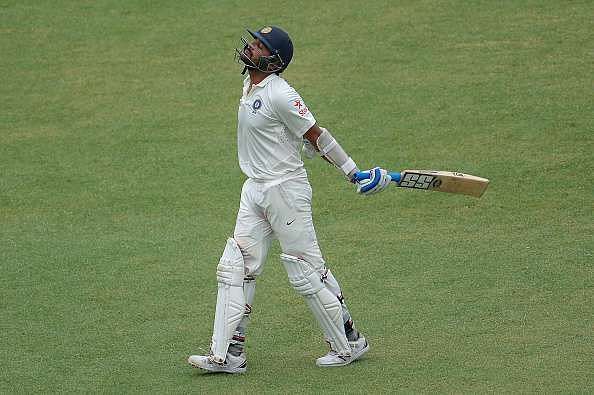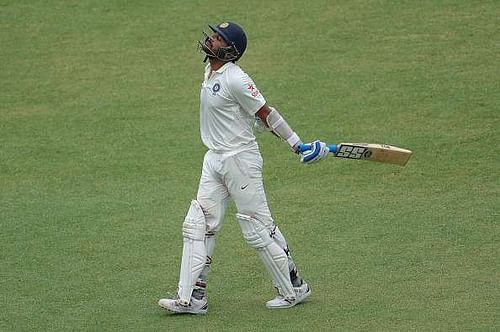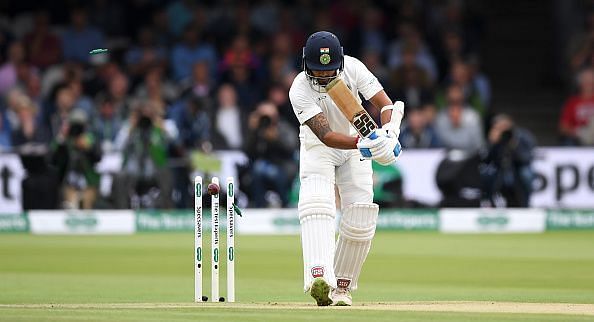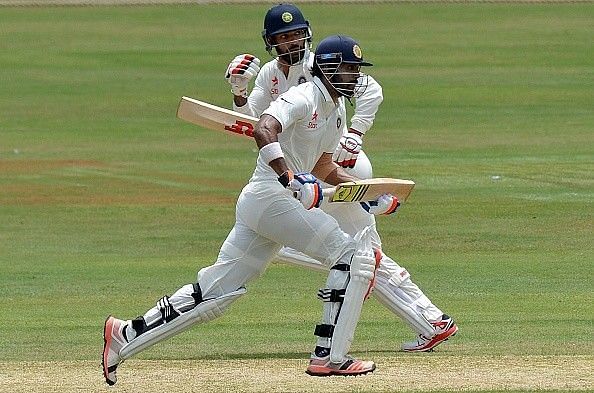
Have we seen the last of Murali Vijay?
In my tribute to Murali Vijay, written in January this year, I reckoned that "he might still have a couple of years, four if he is lucky" before the curtains came down on his India career. Vijay's exclusion from the Test squad for the final two Tests in England, however, suggest that my former optimism might have been misplaced. So is this the end for Murali Vijay?
I for one wish it is not, but then in Indian cricket, it is difficult to tell.

Vijay on the wane
The numbers tell a story, as they usually do. Vijay returned from South Africa with less than 150 runs under his belt, having played all three Test matches. His highest score in the series was 46 and he crossed 20 only once more, in the third innings of the Johannesburg Test, where his three-hour 25 arguably laid the granite foundations from which Kohli and Rahane could set South Africa a competitive total that eventually won India the game on a dicey, at times dangerous, wicket. Vijay himself was pinged on his body quite a few times during his defensive piece de resistance, but the lack of a significant (read 50-plus) score next to his name across three Tests meant that Vijay was not going to get a long rope from a team management that is only a little less fond of playing with the team composition than 'playing with intent'.
The Lord's of triumph, the Lord's of defeat
The rope became shorter for Vijay after paltry returns in the Edgbaston Test, which India could have won with another thirty runs from his bat (or that of any other batsman). The noose-knot on his career was then tied (and tightened), as James Anderson removed him for a pair at Lord's, the hallowed terrain where he had stood statuesque with a masterful (and eventually match-winning) second-innings 96 four years earlier. As Vijay walked back leaving his team 0-1 for the second time in a Test, he must have sensed the vultures circling, even though he is by nature a stoical man. Now, he finds himself out of the Test team wondering, at 34, whether he would take strike again in a Test innings for his country.

Vijay's mid-series omission from the Test squad may be supported by the recent numbers he has generated – numbers which are not at all sustainable for a top-order batsman in the world's top-ranked Test team – but they tell us only part of the story. They do not reveal, for example, that the Indian batting unit as a collective (with the seemingly inevitable exception of Virat Kohli) has failed away from home this year. Nor do they lay bare the fact that at Trent Bridge, where the Indian top order finally assisted their captain with the bat, there was less seam-movement on offer than at Lord's – where, thanks to the weather Gods and the toss, India had faced the worst of the batting conditions – and were long periods where run-scoring was easier than during any of the five away matches India had played earlier in the year. One would have thought that Vijay, who played those games, might enjoy the faith of the team management at a ground where batting was going to be less of an examination and where he had aggregated 198 runs (albeit on a lifeless pitch) the last time he had batted there. That, disappointingly, was not to be.
Vijay's exclusion from the Test squad
Results are no doubt important in top-level sport, and in demonstrating the uncompromising will to win – the sort associated with Australian cricketers – the Indian teams under Virat Kohli are refreshingly different from those of the past. Keeping a winning team at the top, however, requires that delicate balance between keeping faith in proven performers and looking to the future. With that in mind, one feels that the selectors have probably jumped the gun in showing Vijay the door in the middle of an important Test series.

Even if Vijay's exclusion has been on the cards for a while, and is underpinned by the vision to blood in youth, the decision to drop him could have waited until the selection for India's two home Tests versus the West Indies later this year. Moreover, given that Vijay's chances of getting another match in England are bleak, the more so after the 50-plus starts engineered by Dhawan and Rahul at Trent Bridge, it makes little sense to send him home now. Still, if the decision to leave him out has been made with the team's long-term future in view, it is something to be happy about. One only hopes that long-term vision will continue to have a say even when bigger personalities and flashier names stand at the crossroads of their careers.